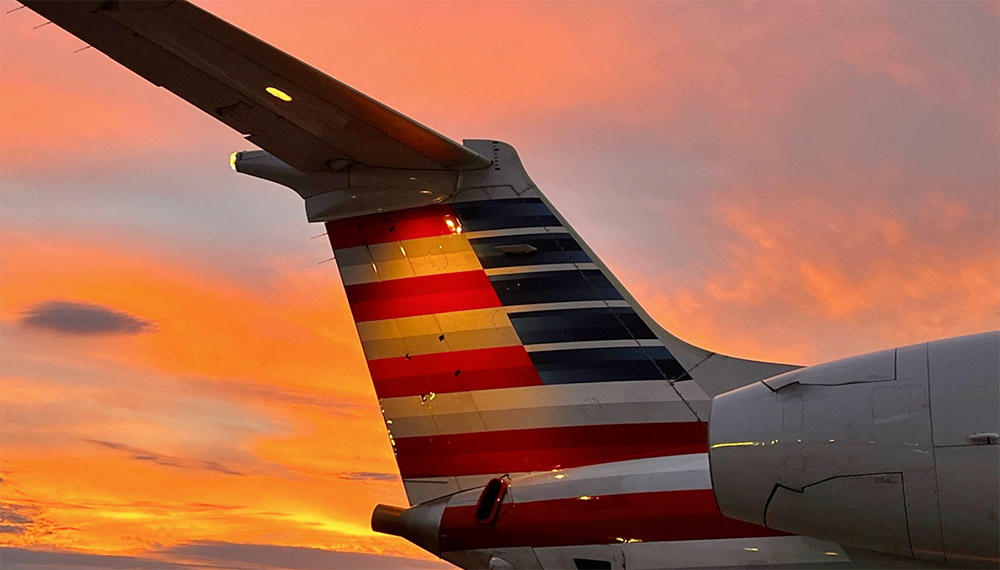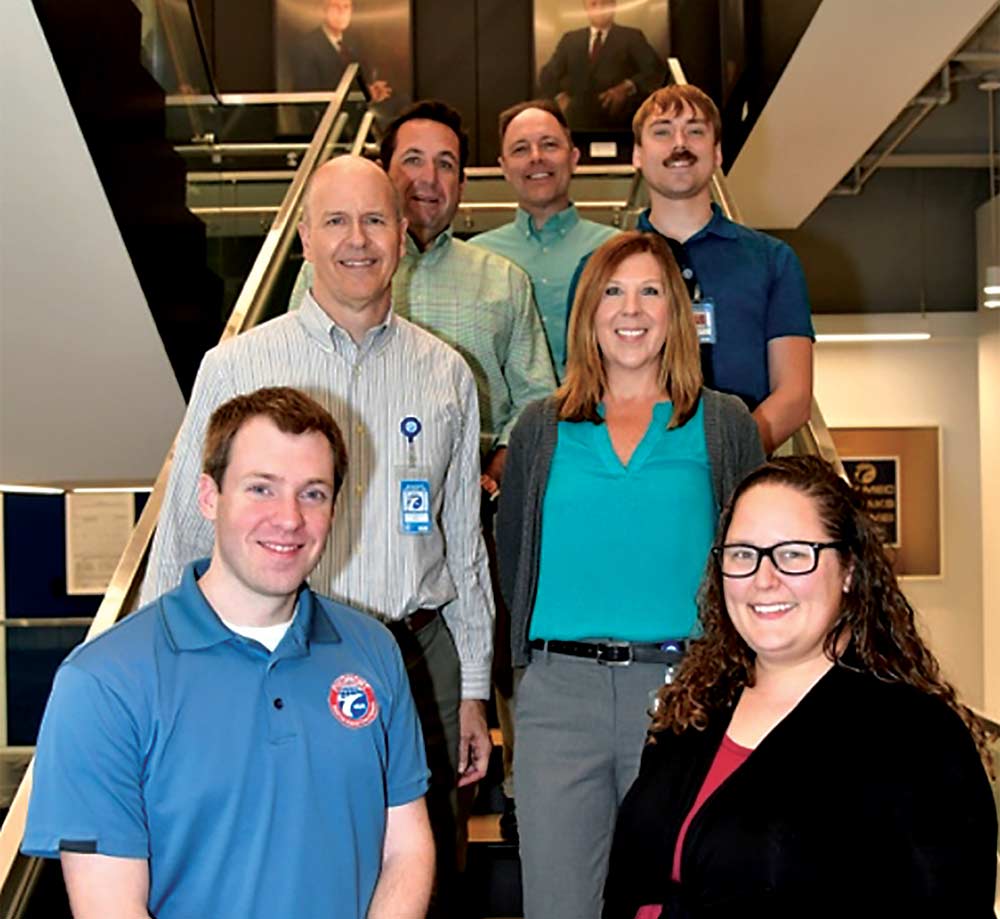Piedmont

One of Piedmont’s E145 at sunrise. Photo: F/O Jeremy Pisell (Piedmont)
At A Glance
Pilots joined ALPA: 1984
Number of pilots/flightcrew members: 700
Pilot bases: Charlotte, N.C., and Philadelphia and Harrisburg, Pa.
Hubs/key markets: Charlotte, N.C., and Philadelphia, Pa.
Headquarters: Salisbury, Md.
Operations: Piedmont operates nearly 400 daily departures to 55 plus cities throughout the eastern U.S., from Charlotte, N.C., Philadelphia, Pa., and Chicago, Ill.
Fleet: 50 E145s
The Piedmont Airlines Master Executive Council (MEC) experienced several changes in 2023. In January, the MEC elected Capt. Justin Barnes the new MEC chair. In April, Capt. Kim Gott was voted the MEC vice chair, and the MEC created the new position of executive administrator. Capt. Chelsea Carlin was elected to the post. And in November, Capt. Rick Meier was voted the MEC secretary-treasurer.
While contract enhancements were secured in 2022, the MEC spent much of 2023 filing grievances to uphold its current contract. The Grievance Committee attempted to work with management to resolve various issues surrounding the current contract, but most issues remained unresolved. MEC leaders had hoped the new agreements would help to create an airline with a strong, healthy future that would attract and retain pilots. However, that vision hasn’t been realized.
This past year ended with the pilots’ Negotiating Committee, assisted by the Preferential Bidding System (PBS) Committee and MEC officers, starting talks with management regarding PBS implementation. The discussion is focused on contract sections that may need to be amended to facilitate a PBS agreement that Piedmont pilots deserve and one that makes the airline competitive. Those negotiations will continue into 2024.


